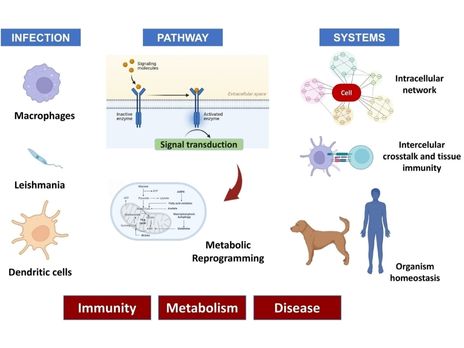
Immunometabolic networks on Leishmania infection
Innate immune cells tightly coordinate their metabolic programs to support a proper immunological function. As such, perturbed metabolic fluxes imply decisive effects on immune cell activation eventuating in their ability to control a pathogen and the disease inflicted by it.








